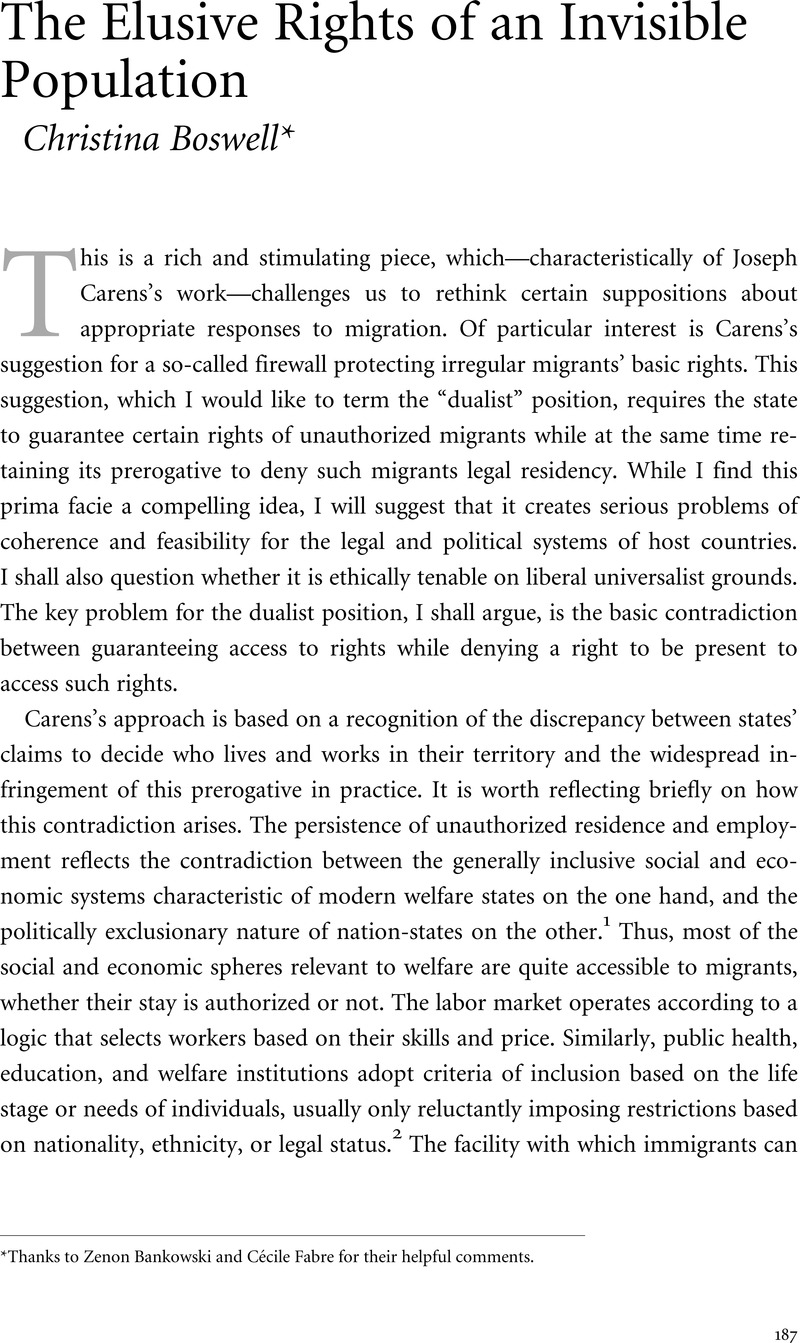Published online by Cambridge University Press: 25 March 2011

1 This section draws on Michael Bommes, “Illegale Migration in der modernen Gesellschaft—Resultat und Problem der Migrationspolitik europäischer Nationalstaaten” (Osnabrück, unpublished).
2 Consider, for example, how public health services and schools tend to resist government attempts to deny access to services by rejected asylum seekers or irregular migrants.
3 For example, the right of children to education and health care (U.N. Convention on the Rights of the Child), or the right of employees to nondiscrimination, regardless of their legal status (EU Anti-Discrimination Directive).
4 This type of reasoning has been applied to cases where an individual was working under an illegal contract but was able to claim damages for discrimination at work. For example, in Hewison v. Meridian Shipping PTE, the claimant was awarded damages for previous discrimination; but the court ruled that no damages should be paid for possible future losses, since this would imply accepting the continuation of an invalid employment contract. See Simon Forshaw and Marcus Pilgerstorfer, “Illegally Formed Contracts of Employment and Equal Treatment at Work,” Industrial Law Journal 34, no. 2 (2005), pp. 158–77.
5 John Griffiths, “What Is Legal Pluralism?” Journal of Legal Pluralism and Unofficial Law 4 (1986), pp. 1–55.
6 Of course, there have been various attempts to justify such limitation on instrumental grounds. For an overview and critique, see Christina Boswell, The Ethics of Refugee Policy (Aldershot, UK: Ashgate, 2007).
7 Refugees do of course have what amounts to a right to enter (or at least not be expelled); see Article 33 of the Geneva Convention on the Status of Refugees.
8 Namely, where a person's rights or needs will be better secured through moving—though consistently with the host country retaining the conditions necessary for preserving liberal institutions, and the equal distribution of rights. For a discussion, see Cécile Fabre, Justice in a Changing World (Cambridge: Polity, 2007).